#beerhistory
Explore tagged Tumblr posts
Link
🍺✨ Ever wondered where beer originated? From ancient grains to brewing traditions, discover the fascinating history of the world’s favorite drink! 🍻 📖 Read more: [https://mentalitch.com/where-did-beer-originate-from/]
#BeerHistory#AncientBrewing#OriginsOfBeer#CraftBeerLovers#BeerCulture#FunFacts#BrewingTraditions#DidYouKnow#HistoryOfBeer
5 notes
·
View notes
Text
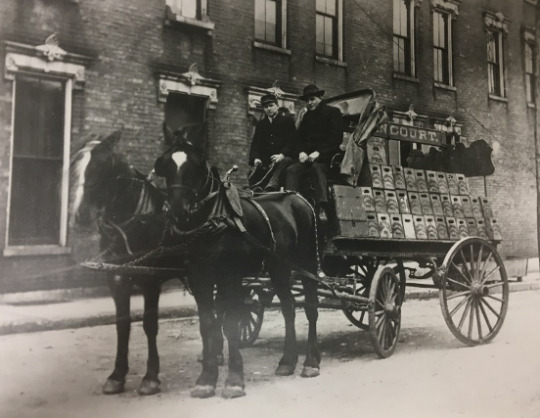
A Snapshot of Early Cincinnati Breweries. By: Sarah Staples, Helen Steiner Rice Archivist
Early immigrants, like Frederick Billiods, William Attee, Patrick Reilly, Peter Jonte, Thomas Wood and John Walker, opened breweries in Cincinnati that produced beers found in their native countries – France, England and Ireland – mostly traditional ales and porters. Keep reading: https://www.cincymuseum.org/2020/05/05/a-snapshot-of-early-cincinnati-breweries/
#cincymuseum#unionterminal#cincinnati#history#cmcuncrated#ohio#beer#beerhistory#craft brewery#brew#breweries
1 note
·
View note
Text
So long BridgePort Brewing Co.
When I was mulling over starting an archive dedicated to collecting the history of hops, brewing, and research in the Northwest I called two people 1. Peter Kopp, who was working on his book on hops in the Willamette Valley, and 2. Karl Ockert, who was Karl Ockert.
Several years earlier I supervised his daughters when they were student employees in the University Archives and taught a class they took on archiving and historical research. I met Karl then and when they introduced him as a brewer I wondered what that even meant. Fast forward and I found out.
I grew up in Eugene, Oregon and remember BridgePort in the hazy way that kids remember things. I knew my dad was excited about microbreweries, but I had no idea why.
Now, for me the specialness of this first (successful) microbrewery is mixed with all the ways BridgePort has supported OSU and mixed with the kindness of Carole Ockert (my first OHBA oral history) and mixed with the connections Karl Ockert offered me is mixed with all the other stuff related to history-makers and a changing industry.
His daughter Ingrid, who is now an “Oregon State alum with a Princeton PhD and Historian of Science & Media, shared a really lovely remembrance on her Facebook page today. I’ve asked her if I could repost it here -- thanks Ingrid.
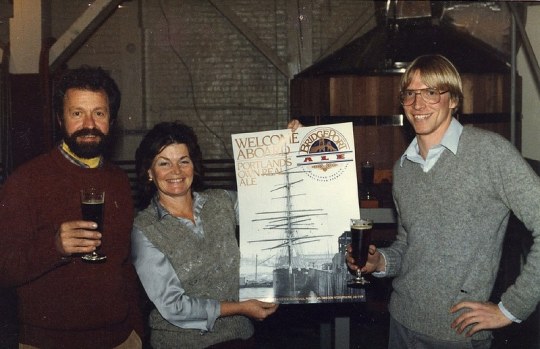
Bridgeport Brewing has officially announced that it is ceasing operations.
It's over.
My father no longer works there, but this was the brewery that he started in 1984. Six years before my sister and I were born. I spent a lot of my childhood in the brewery. I mean, I joke about growing up in a bar, but really, I grew up in and around bottling lines, the intense smells of fermenting hops coming out from the brew kettles. Looking at amber bottles. Slipping around the floors that were coated with God-knows-what. Dad worked a lot of late nights and weekends and we'd be there with him in the offices, entertaining ourselves until he was finished. Playing with the model brewing kettles and eating malt balls. There is a certain grief that I feel with this news - Bridgeport was always there, the older child, it felt like the older child.
And this was before craft beer was big. Before it had ascended a cultural status. Everyone thinks what their parents did was 'weird,' but I really did as a child. Back when we would sheepishly tell our friends that our dad made beer for a living and when our teachers at school would hound us to admit at "beer was a poison." (Ah, those 90s drug educational lessons). My first memory was being at a beer garden at Edgefield and wandering through a tent. It was weird to spend a childhood hanging out at bars, breathing in cigarette smoke, and hiding out in the legendary Bridgeport bathrooms to get away from the "noise" of the crowd.
It was only in the last five years or so, when I started to drink more, that I came to appreciate what my father and mother had helped to create. What it meant to be a brewer's daughter.
My father had stopped brewing for Bridgeport by that point and I had changed coasts. But I really felt pride to be able to talk to people at parties and say that, yeah, my father created that recipe that he was one of the pioneers of brewing in Oregon. That he and my mother had helped start the first microbrewery in Oregon. That he had rallied his friends to help make brew pubs LEGAL. (Can you imagine them NOT being legal?). My dad helped introduce IPAs to the United States.
The grief. It's strange to process it. It was just a company. Again, my father hasn't worked for Bridgeport for many years. But Bridgeport had always felt like a distant sibling. Our baby albums are filled with clippings of us as toddlers and news about Bridgeport. It felt like an older sibling. Someone who had grown distant, but who I could always visit if I headed back to town.
I visited the office buildings, on a lark, last spring. It brought back a wellspring of memories: the smell in the air, the brick walls. I'll miss it. I had hoped that I could bring my nieces and nephews there one day, and say, hey, your grandfather helped to start all this. But, in my mind at least, I'll still be able to walk around the ancient ropewalks, even when it's been converted into high end condominiums.
Still, sorry to see it go. Apologies for the moment of reverie. Just needed to process this.
Cheers.🍻
3 notes
·
View notes
Photo
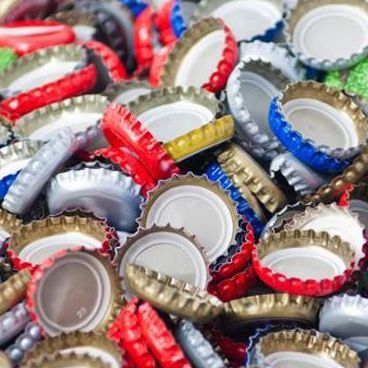
INVENCIÓN DEL TAPÓN CORONA (CHAPA) William Painter, fue un prolífico inventor de origen irlandés afincado en Baltimore, que encontró la solución, diseñando y patentando, el 2 de febrero de 1892, un tipo de tapón que resistía el potente gas contenido en cada botella y que era fácil de colocar gracias a una máquina industrial también inventada por él. Pero poco después se encontraron con el problema de que muchos compradores (sobre todo de las zonas rurales) no tenían ni idea de cómo abrir las botellas, utilizando todo tipo de utensilios para ellos y rompiendo en multitud de ocasiones el cuello de la botella. #chapa #taponcorona #cierrebotella #cerveza #cervezaartesana #bier #birra #cerveja #pivo #biere #beerpic #beerinfluencer #beerbrandambassador #beersommelier #beerhistory #beertography #blackbeerconnoisseur #beertime #beerpassion #beergeek #beerstagram #beerpic #beersommelier #beerlovers #beeroftheday #beerlover #momentoscerveceros #fechahistotica https://www.instagram.com/p/CZe9N_WqFB6/?utm_medium=tumblr
#chapa#taponcorona#cierrebotella#cerveza#cervezaartesana#bier#birra#cerveja#pivo#biere#beerpic#beerinfluencer#beerbrandambassador#beersommelier#beerhistory#beertography#blackbeerconnoisseur#beertime#beerpassion#beergeek#beerstagram#beerlovers#beeroftheday#beerlover#momentoscerveceros#fechahistotica
0 notes
Text
Τί είναι μπύρα. - Voldrinks
0 notes
Photo
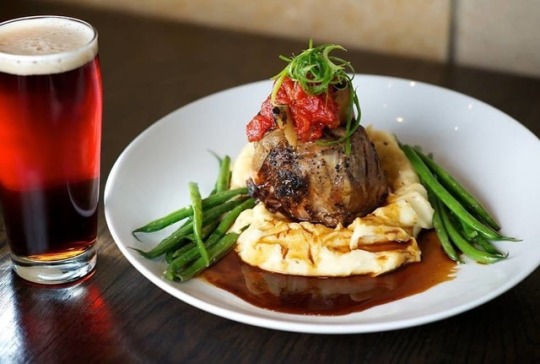
Sink your teeth into the barbarossa-braised pork shank with smoked cheddar mashed potatoes, green beans, tomato chutney and barbarossa demi-glace at Moerlein Lager house! @moerleinlh . . . #MoerleinLH #MoerleinLagerHouse #Thebankscincy #Cincinnati #craftbeer #cincybeer #yelpcincy #cincyusa #ChristianMoerlein #beer #moerlein #beerwithfriends #cheers #beerme #beerhistory #ohio #ohioriver #cheers #citiviewtravel
#yelpcincy#christianmoerlein#moerlein#beerwithfriends#beerme#beer#moerleinlh#cheers#citiviewtravel#ohio#moerleinlagerhouse#thebankscincy#cincyusa#beerhistory#cincinnati#cincybeer#craftbeer#ohioriver
1 note
·
View note
Photo
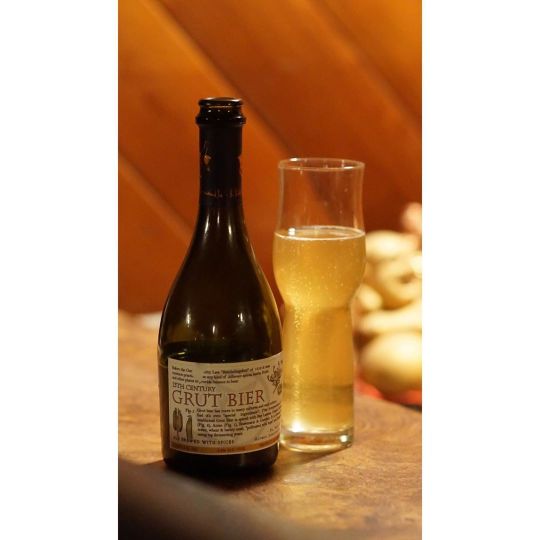
Before the German Purity Law “Reinheitsgebot” of 1516 it was common practice to use any kind of different spices, herbs, fruits and other plants. Hops was not yet well known at this time. Grut bier has roots in many cultures and each culture had it’s own “special ingredients": Egyptians, Native Americans, Arabian Tribes, Gaulles, Germanic Tribes and the Vikings. This interpretation of a traditional Grut Bier is spiced with Lorbeer (Bay Leaves), Ingwer (Ginger), Kummel (Caraway), Anis (Anise), Rosemarin (Rosemarie) & Enzian (Gentian). It is brewed with water, wheat & barley malt, “pollinated wild hops” and fermented using top fermenting yeast. . . . . . #gruitbeer #grutbeer #nohopsbeer #beerbeforehops #beerhistory #beerbaasha #torontobeerreview #aaravivekananthantoronto #ancientbeer #beersoftheworld https://www.instagram.com/p/CAQi84qpQKI/?igshid=u8gv2gdxeti6
#gruitbeer#grutbeer#nohopsbeer#beerbeforehops#beerhistory#beerbaasha#torontobeerreview#aaravivekananthantoronto#ancientbeer#beersoftheworld
0 notes
Link
Did you know? 🍺 History suggests that women may have been the first brewers of beer! Dive into the fascinating origins of this iconic beverage. 👩🍳✨ https://mentalitch.com/was-beer-invented-by-a-woman/
#BeerHistory#WomenInHistory#BrewingBeer#FunFacts#AncientTraditions#DidYouKnow#BeerLovers#CheersToThat#HistoryBlog
3 notes
·
View notes
Photo
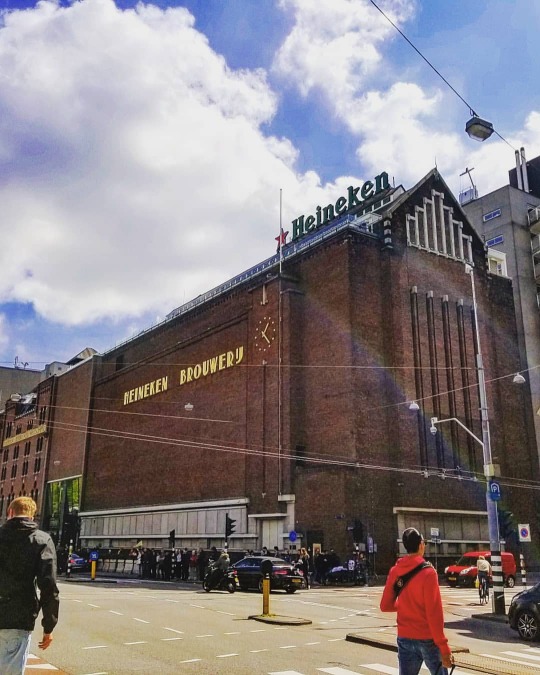
The Original and first Heineken Brewery #heinekenexperience #DutchBeer #heinekenbrewery #heinekenadvertisement #BrewingBeer #BeerHistory #heineken🍺 #heinekengreenroom #amsterdam🇳🇱 (at Heineken Experience) https://www.instagram.com/p/B4LegijgQBL/?igshid=19ovefcm2i2q3
#heinekenexperience#dutchbeer#heinekenbrewery#heinekenadvertisement#brewingbeer#beerhistory#heineken🍺#heinekengreenroom#amsterdam🇳🇱
0 notes
Photo
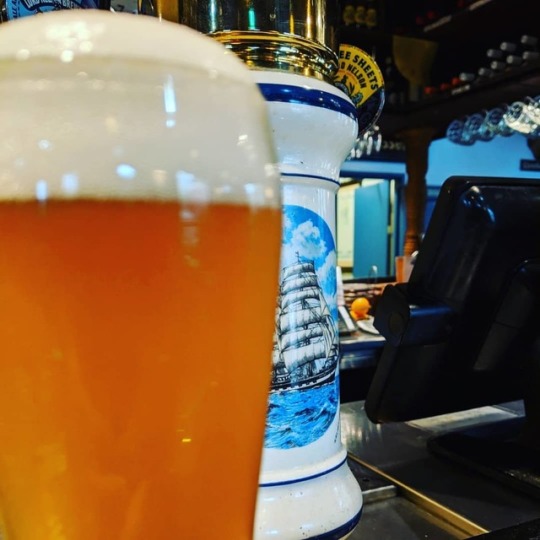
In Sydney's oldest operating hotel with a brewery in the basement @lordnelsonbrewery enjoying some pints. My favorites were Mom Cheri the seasonal ale Brewers with cherries, and Nelson's blood the excellent porter. 2nd stop of the brewery tour . . . #beerhistory #englishpub #aussiecraftbeer #craftbeeraustralia #wanderlust #travel #craftbeercommunity #beerworld #craftbeerworld #craftbeerlovers #craftbeersydney #craftbeertravels (at Lord Nelson Brewery Hotel) https://www.instagram.com/p/B3Bf1rFlyP8/?igshid=clzqjw5ughii
#beerhistory#englishpub#aussiecraftbeer#craftbeeraustralia#wanderlust#travel#craftbeercommunity#beerworld#craftbeerworld#craftbeerlovers#craftbeersydney#craftbeertravels
0 notes
Text
A little history at the 2017 Aroma Hops Symposium
“Hops are much more important for beer than is generally estimated, even in brewery circles.” Verzele, 1986

The 2017 International Brewers Symposium on Hop Flavor and Aroma in Beer Aroma Hops Symposium may have kicked off with some social events Tuesday night, but Wednesday morning I was there for the history!
And you can tell the site designers were thinking about it since some of our OHBA pictures ended up on the main page! Bonus points if you know who the second guy from the left in the right side picture is...

I was there to hear Dr. Christina Schönberger, from Barth-Haas, talk about the History of Hop Aroma Research.
Before I even get to the next paragraph, I want to remind ALL of you that I am not a chemist or a scientist in any way. So this post will be a summary and I hope will give you some ideas for doing your own deep dive into the history of aroma research.
And Barth-Haas has those amazing online historical reports online!

I recommend that everyone who wants to know about the global hop market check it out because they date to 1911.

Schönberger framed her talk as a series of questions, so I’ll follow in this post.
When did people begin to refer to hop varieties rather than the regions or growing areas? In the 1912 report she noted that hops were identified by the growing regions and cities where hops coming from; she called these the "Old land varieties." By 1949 the areas have changed, so not just reporting from the old land, but she also found numbers for other countries (eg Japan, New Zealand), and also calling out specific states in the US and regions in England. 1969 was the last mention of areas, and they were replaced by varieties. While today we have more than 250 hop varieties – all unique (some more or less) – given that the Fuggle was introduced by Richard Fuggle in 1875 and that by 1900 there were already 20 varieties grown in the UK, this is odd. What impact does this have on historical research into what people were using to brew? Well if you are looking for specific reference to a variety and don't find it, my conclusion is that a lack of variety specificity doesn't mean an absence of specific varieties being used. It may just be that the specific varieties hadn't made it into the general lexicon of brewing recipes.
What about levels of hop dosing? Again thinking about historical research, I've heard lots of assumptions about how innovative the craft brew hyper hopped beer are, and while Schönberger acknowledged that it isn't easy to find concrete records from which to generalize about the actual levels of hop dosing, but she used those global hops production reports from Barth and then divided them by rates of beer production. Again, while this isn't totally accurate, it gives us an idea. In 1900 she finds that people were using a lot of hops, with recipes calling for 4-5 lbs in IPA. Not surprising for people who have looked at beer history, the hopping load decreases significantly over the 20th century - especially in the US where we see the deepest dip in 1985. And of course for those of you who have looked around at beer descriptions in the last 30 years, you know that certainly in the US we've had a big increase in the use of hops, but worldwide there are still fewer hops overall.
What were the early aroma hops research projects? She found that by early 1900 the bulk of the aroma research focused on trying to separate oils from hops. Next followed identifying aroma compounds in hops, and then work to identify or judge the sensory importance of hop aroma compounds in beer based on variables such as kettle, late, or dry hopping to assess the influence hops have on the final hop aroma in beer based on when they were added. She also noted that this early worked was shaped by different cultural approaches to hop aroma research (early research leaders were the UK, US, Germany, Belgium) with researchers from different backgrounds or with a different relationship with beer and hops. Like much of history, people complicate things and mean we don't have easy stories!
Early researchers were also just asking different questions. In looking at the popularity of deep aroma research, she found that really there wasn't much going on in 1970s/1980s, but since 2007 (when there was a hops symposium here at OSU) the numbers of publications increased. Additionally, varietal research basically started after 2007, and since then there has also been a focus on dry hop aroma.
I wanted to make a big list of all the important publications in early hop aroma research, but I didn't type quite quickly enough... Nonetheless, I think this gives you a pretty good idea of topics, researchers, and significant periods of research. In the earliest research (early 19th century), aroma research was strongly connected to developing distillation methods to obtain hop oil. And you can Google most of the names in combination with the dates and find information online if you’d like to know more.
In 1819 Hanin gave the description of the volatile portion of hops. He reported that the yellow powder (lupulin) of hops was tasty, odorous, resin-like, and inflammable.
In 1822 Payin and Chevalier found that if they distilled that lupulin they got an oil that had the characteristic odor of hops.
In 1853 Wagner studied the hop oil and was the first to write about terpenes in hop oil, which he compared to camphor. As a side note, Wagner also gave drops of the oil to a rabbit and found that, despite what others thought, it did not have narcotic properties.
In 1877 Kuhnemann also distilled hops with steam and obtained an oily substance he called "hop oil."
Flash forward to the 20th century and by the 1960s scientists are looking at what’s in the beer (compounds).
There was an important publication by Howard in 1956, and I think it had to do with blending up the hops and doing something with extraction??
In 1964 Buttery developed GC-MS, which is a sensory evaluation of hop aroma still used today.
In 1976 Tressl identified the components (terpenes) removed by yeast and filtration (and I think some other compounds I missed).
In 1981 Sharpe and Law wrote about hop oil components, specifically hydrocarbons, oxygenated compounds, sulfur-containing compounds, and looked at methods available to the brewer for adding hop character to beer.
There was a lot of activity in the 1980s, with early publications by Val Peacock in 1980 and 1981 where he talks about hop aroma in beer, compares US and European hop aroma, and looks at geraniol in the Cascade hop.
In 1982 Meilgaard catalogs 850 compounds, and develops primary, secondary, tertiary flavor compounds.
In 1983 Tressel did work to identify work on tricyclic sesquiterpenes.
In 1985 Foster and Nickerson looked at "hoppiness potential."
In 1986 Verzele did a centenary review "100 Years of Hop Chemistry and its Relevance to Brewing" in the Journal of the Institute of Brewing.
In 1988 Peacock and Deinzer (I think while they were both at OSU?) wrote about the "fleeting nature of hop flavor compounds."
In 1992 Engel and Nickerson identified 250 hop aroma compounds to quantify the “hoppiness” of a given hop sample. You might have heard of the Aroma Unit? Read more about it online.
In 1994 there was an EBC Symposium on hops, which was fabulous because both the presentations and later discussions are included. The monographs aren’t online and it doesn't look like we have them in the library here. It was also in 1994 that Westwood said not to believe that there is a single hop aroma oil compound because it downplays the subjective assessment and sensory work.
In 1998 Collin and her team did an essential hop oil analysis based on varietal discrimination, I think with the goal of differentiating between varieties in pellets?
In 2000 Schieberle and Fritsch looked at compounds, and also debated some findings in other publications.
In 2002 Goiris Aerts wrote about the spicy hop character of beer in threshold studies.
In 2005 Kishimoto examined the behavior of hop aroma terpenoids during the boiling process. This might have turned into a doctoral dissertation in 2008?
In 2007 the first International Brewing Symposium was held in Corvallis, and that really kicked off deeper studies on aroma hops.
What about the future? She'd like to see more studies on the correlation of aroma compounds and sensory descriptors, changes of flavor quality depending on concentration/perception, interaction of hops and beer aroma compounds, biology of flavor perception, enzyme/yeast contribution to hop aroma, potential sulfur compounds, more key aroma components, dry hop aroma stability, variety specifics and meaning for brewing or beer style, and impact of harvest time on hop flavor. We'll check back in in 2027 to see whether these have happened!
#International Brewing Symposium#brewing#history#international brewing#oregon state university#beer#beerhistory
1 note
·
View note
Photo

New wall who dis 🤘🏻come and check out our new murals from one of the original @heineken_uk breweries 🍻 #brighton #kemptown #heineken #beer #beerhistory #pub (at Sidewinder)
0 notes
Photo

Bread was a major food in ancient Egypt. Get more Egyptian food facts.
0 notes
Link
Discover the art of slow beer! 🍺✨ Dive into the history of aging beer and how time transforms flavors into perfection. Cheers to patience! 🕰️ https://mentalitch.com/slow-beer-the-history-of-aging-beer/
#SlowBeer#BeerHistory#CraftBeerCulture#AgingBeer#BeerLovers#BrewingTraditions#TasteTheHistory#BeerTime
1 note
·
View note
Photo

The heart & soul of Andy's Corner Bar - GEORGE! ... in one month, they will be celebrating 47 years!!! #lovethisbar #lovethisplace #andyscornerbar #njhaunts #njbars #bogotanj #nj #beerhistory #beerme #supportlocal #support #supportsmallbusiness #supportyourlocalbar #jollygoodtime #boulevardryeonryeonrye #ryebeer #beerlover #nomadsrule (at Andy's Corner Bar)
#ryebeer#boulevardryeonryeonrye#beerlover#supportyourlocalbar#nj#beerhistory#bogotanj#beerme#supportlocal#lovethisbar#supportsmallbusiness#support#njhaunts#jollygoodtime#njbars#andyscornerbar#nomadsrule#lovethisplace
0 notes